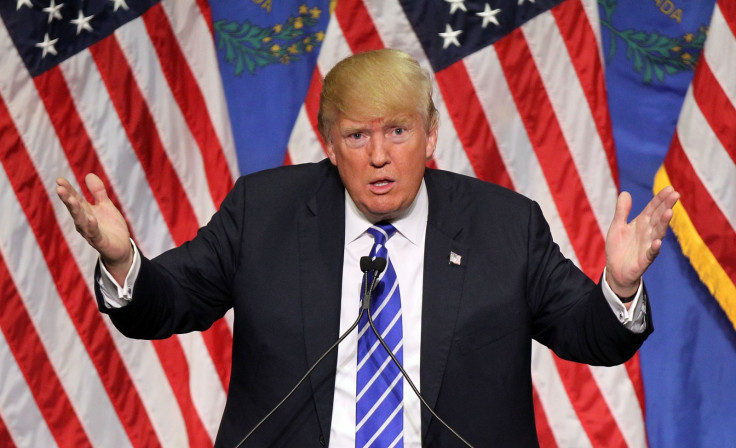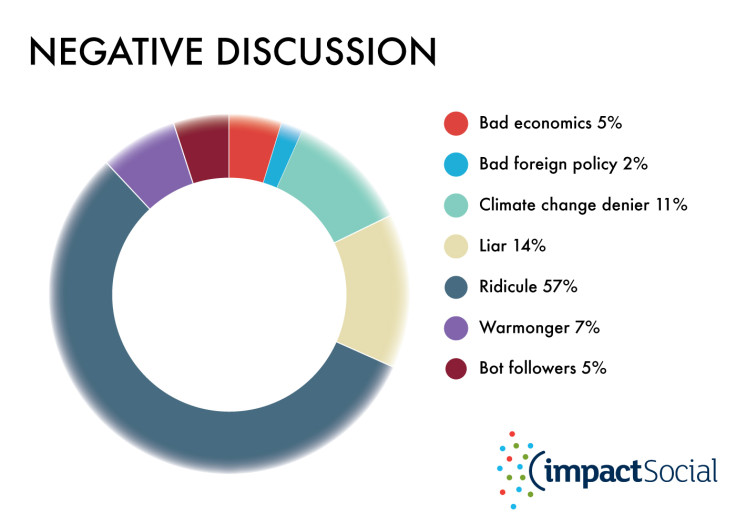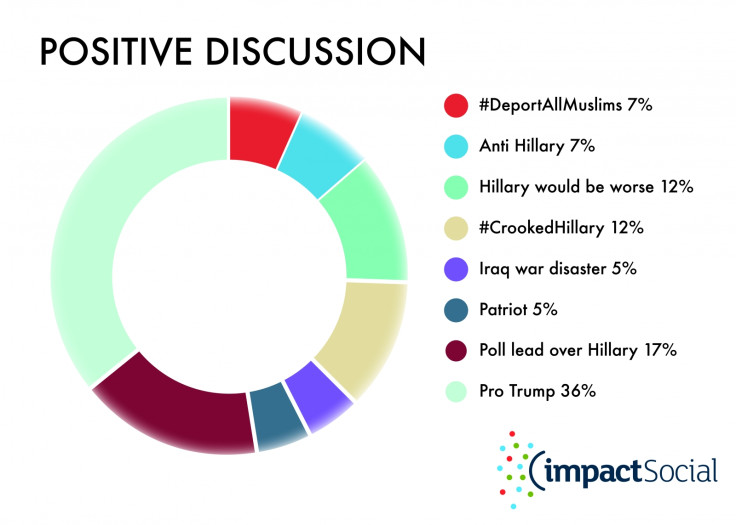What an analysis of 15,000 social media posts tells us about Donald Trump's international support

Politicians generally come a cropper when they assume that everyone agrees with them. Our wise leaders in the UK, and around the world, have felt on safe ground in recent months in having a pop at The Donald.
Prime Minister David Cameron called him "stupid, divisive and wrong," while the new mayor of London, Sadiq Khan, declared him "ignorant". Angela Merkel labelled him a "threat to peace" (while backing Hillary Clinton).
They all felt safe doing that − throwing insults to the funny boy in the playground, looking round and grinning, feeling secure in the knowledge that all the others watching would agree and would join in any second. But as the name calling dies down, these leaders are finding the silence in the schoolyard increasingly uncomfortable. For, as a detailed look at social media data tells us, the rest of the world isn't mocking the weird kid with quite the same vigour.
The social media insight company Impact Social analysed 15,000 social media posts using the hashtag #Trump (you can check out their methodologies here), all emanating from outside of the USA, Canada and Puerto Rico. The data has been read from the perspective of the Trump campaign team − are the social media discussions positive or negative? For a campaign that has largely eschewed traditional TV advertising and is driven by social media, that question is crucial.
What Impact Social found was surprising, perhaps even alarming, to those outside of the US who just assume that, in their country, Trump would never be taken seriously by the electorate. It may be uncomfortable to Cameron and Khan, but any preconceptions that a Trump presidency would alienate the US from the rest of the world are called into question by Impact Social's analysis. It turns out that plenty of us quite like the guy. Agree with him, even.
That's not to say he's a unifying figure in any sense. Analysing the social media data over the last week, the spikes in positive and negative sentiment (ie those who really like him - or really don't) around mentions of #Trump are 46%. That's around twice the figure you'd get for a "normal" politician. We're generally more sanguine about our leaders than we think, until it comes to Donald.

Of course, there remain some strongly negative associations with the #Trump brand across the world too - 57% of the mentions included some form of ridicule, 14% of discussions had him down as a liar and 11% as a climate change denier. Yet some of the other supposedly weak points in the Trump appeal barely rate a mention − criticism of his whimsical foreign policy musings mustered only 2% of all mentions, and only 5% sniped at his economic policy.
For a normal presidential candidate such a high ridicule rating across the globe would be a massive problem. Trump has proved it doesn't affect him. Laugh at his hair all you like, it's not going to make a difference.
Similarly, a chunky percentage of people who think he's a liar would normally have a regular campaign manager sweating (even if we're measuring worldwide reputation here, rather than likely votes). Trump's people will be relaxed. Plenty of people have had him down as a liar before. It's not slowed him down any.
It's Hillary Clinton, and her campaign leaders, who should be worried. All that ridicule of her rival and she's still behind in the polls, and taking a reputational hit worldwide. Those four years as secretary of state, that (almost) million miles of air travel she did, the years tethered to Bill − the world doesn't seem awfully grateful. Of the global social media postings that mentioned #Trump, 12% of them were suggesting Hillary would be worse. A similar number used the hashtag #CrookedHillary (even before the latest email revelations), and a further 5% talk of Clinton's role in Iraq.

These are not huge numbers, but they are significant. They nag away at the advantage she, and many others, assumed she has against such a wildcard and 17% of the relevant social chat is of the growing poll lead that Trump is enjoying.
Not everyone loves The Donald − we know that anecdotally and the data backs it up. And if you don't like him, then you really don't like him. But that doesn't seem to have affected his chances inside the US, and that pattern is, the social data shows, matched reputationally outside the States. Indeed the #deportallmuslims hashtag was attached to 7% of posts about #Trump (sorry, you can't assume irony here). That, remember, is outside North America.
What's especially worrying for Clinton is that her sensible, experienced, who-you-gonna-call-at-3am persona isn't hitting home. That very experience leads to mistrust of the Beltway professional, while Trump's wild-eyed extremism on the hoof isn't damaging him as much as it might be assumed. The message seems to be that if you take all this politics stuff seriously and talk about policy detail, then people won't actually appreciate it. Make it up as you go along and people will join you for the ride.
So, if Hillary is waiting for the world to come to its senses, as well as her own electorate, she shouldn't be holding her breath. Trump's campaign as the outsider is resonating beyond his own borders as a sizeable chunk of global citizens take the same dim view of assumptive political elites.
As the polls continue to show a Trump lead inside the US campaign, and social data shows the rest of the world starting to feel the same, then Cameron, Khan and co might start to feel a little sweaty about the next state visit from across the Atlantic.
Read more in our series on Generation Trump.
© Copyright IBTimes 2025. All rights reserved.






















